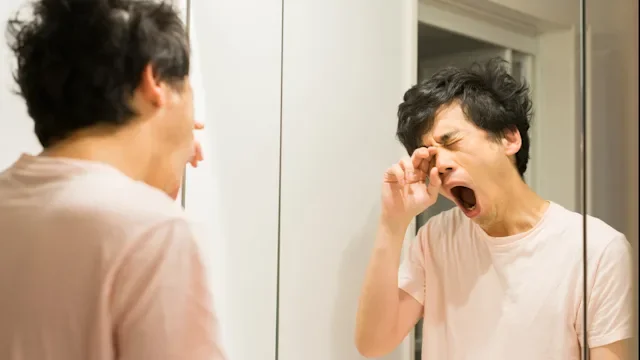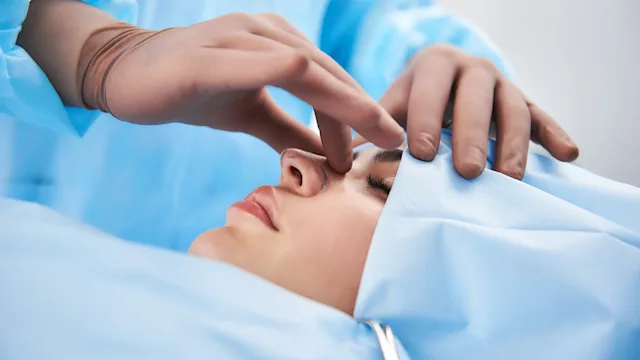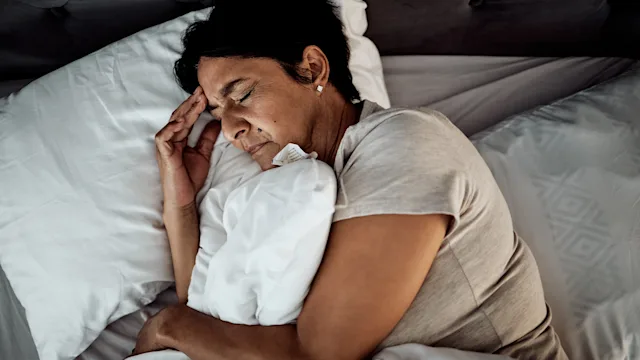Key takeaways:
Melatonin is a hormone the brain releases at night to help you fall asleep. Melatonin can be safe for kids if used correctly.
Melatonin can help treat children with sleep-onset insomnia and delayed sleep phase disorder. Children on the autism spectrum or who have attention-deficit hyperactivity disorder (ADHD) might also benefit from melatonin.
You should not give melatonin to kids just to promote good sleep. Kids who don’t have a sleep condition should not take melatonin.
Kids need quality sleep to grow and learn. Sleep is important for both their physical and mental well-being. But kids aren’t always the best sleepers. You may have heard that melatonin supplements are a great way to make sure your child gets a good night’s rest.
Melatonin is a hormone that helps people sleep. The brain naturally releases melatonin when the sun sets so people can get into “sleep mode.” Melatonin is a popular supplement because it’s a more natural sleep aid than some other options.
But is it really safe to give kids melatonin to help them sleep? Let’s take a look at when melatonin can really help children sleep better and how to use it safely.
Search and compare options
Is melatonin a safe sleep aid for kids?
It can be.
Studies show that melatonin is safe for kids and teens when used correctly. Children should only receive melatonin:
If they have a sleep condition that can be treated with melatonin: Children should not take melatonin just to promote quality sleep or to help with sleep regression or short-term sleep changes.
For short periods of time (up to 1 year): Research has not shown whether it is safe for kids to take melatonin for long periods of time. It’s also not clear how prolonged melatonin exposure can impact a child’s brain development.
At the right dose: Always follow dosage instructions when giving children melatonin. Just because melatonin is “natural” doesn’t mean a child can’t take too much. In fact, accidental melatonin overdoses increased 530% between 2012 and 2021. While most children recovered, several became very sick and two died.
It’s also important to keep in mind that the FDA has not approved melatonin for children. So giving children melatonin is an “off-label” use.
Quiz: Does my child have sleep apnea?
Sleep conditions in kids that melatonin can treat
Sleep experts agree that children shouldn’t take melatonin if they don’t have a sleep condition. That means you shouldn’t give your kid melatonin just to promote a good night’s rest. You also shouldn’t give your teen melatonin to help them fall asleep earlier in the evening.
But melatonin can help if your child has one of these conditions:
Sleep-onset insomnia: This type of insomnia, which is more common in younger children, means children have trouble falling asleep (but they can stay asleep).
Delayed sleep phase syndrome: Delayed sleep phase syndrome is a circadian rhythm disorder where someone’s sleep patterns are off by at least 2 hours. This makes them go to bed later and wake up later. It affects their ability to function at work, school, and in social settings. It’s common among teens and young adults.
Neurodivergence: Kids who are on the autism spectrum can have trouble getting to sleep at night. The same is true for kids who have attention-deficit hyperactivity disorder (ADHD), especially if they take stimulant medication. Studies show that melatonin can help these kids sleep better.
Read more like this
Explore these related articles, suggested for readers like you.
If your child is having trouble sleeping, but they don’t have one of these conditions, don’t jump to melatonin. Lots of things can lead to trouble sleeping. It’s important to figure out the cause of the issue and address it directly.
Some common reasons kids have trouble sleeping include:
Anxiety or depression: Many kids who worry or feel down have trouble getting to sleep at night.
Restless leg syndrome: If your child is experiencing restless legs syndrome, they can have disrupted sleep.
Other medical conditions: Some other medical conditions may interfere with sleep. These include things like pain from reflux, itchy skin from eczema, or coughing from asthma.
Melatonin dosage for kids
In general, experts recommend starting with the lowest dose possible, which is 0.5 mg, and increasing it once a week as needed. Most children won’t need more than 2 mg. Most teens don’t need more than 5 mg.
Kids with delayed sleep phase disorder usually need very low doses: 0.2 mg to 0.5 mg of melatonin at night.
For sleep-onset insomnia, the best dose will vary by your child’s age:
Children 4 to 5 years old may need about 1 mg to 2 mg of melatonin nightly.
Children 6 to 12 years old may need 2 mg to 3 mg of melatonin nightly.
Teens may need up to 5 mg of melatonin nightly.
Experts also point out that some children on the autism spectrum may benefit from slightly higher doses of melatonin. But the doses shouldn’t exceed 10 mg per night.
Before giving melatonin to your child, it’s a good idea to discuss dose with your child’s healthcare provider.
Melatonin works best if kids take it at the right time. If your child has sleep-onset insomnia, they should take melatonin 30 minutes before bedtime. But for delayed sleep phase disorder, your child should take melatonin 3 to 5 hours before bedtime.
Keep in mind that children 3 years old and younger should not take melatonin unless prescribed by a healthcare provider. Some experts recommend against giving melatonin to children younger than 5 years old in any situation.
Forms of melatonin for kids
You can find melatonin in different forms, including:
Liquid
Gummies
Chewables
Tablets
Capsules
The form you choose depends on your child’s preferences. Can your child swallow a pill? Will they tolerate the taste of liquid or prefer a gummy? You may have to try a few different forms before you find what works best.
What are the side effects of melatonin in children?
Any medication or supplement can cause side effects. The most common ones with melatonin include:
Increased bedwetting
Nightmares
Dizziness
Mood changes
Morning grogginess
One possible side effect that’s unique to kids is early puberty. Some experts worry that when kids stop taking melatonin, the decrease in melatonin hormone can trigger early puberty. One study showed melatonin did not affect puberty. However, more studies are needed before experts remove this warning.
It’s also important to remember that the FDA doesn’t regulate supplements like melatonin. That means the amount of melatonin in supplements can differ from brand to brand.
Can a child become dependent on melatonin?
Melatonin should not cause physical dependence if taken for short periods of time at the appropriate doses. But there’s no research showing how long-term use of melatonin can impact children. So, it’s unclear if children who’ve been taking melatonin for long periods of time will react when they stop taking the supplement.
When should I contact my child’s physician about melatonin side effects?
If your child develops any unusual symptoms while taking melatonin, or you’re worried they might have taken too much, call the National Poison Control Helpline at 1-800-222-1222.
What natural alternatives can help kids sleep?
Besides melatonin, there are many things you can do to help your child get a good night’s rest. Try some of these sleep hygiene tips:
Create a sleep routine. Kids (including teens) thrive on routine. Set a bedtime and create a routine around it. Follow the same steps each night. These might include bath time, reading, and a snack.
Limit screen time. Blue light from electronic devices stimulates the brain. Stop screen time at least 1 hour before bedtime to encourage sleep.
Stay active during the day. It’s probably no surprise to hear that exercise and activity help people sleep better. Just make sure your child takes it easy for 1 hour before bedtime.
Avoid caffeine. While teens should avoid caffeine in general, they definitely need to avoid it for several hours before bedtime. Caffeine is a stimulant and will prevent them from falling asleep.
Try a meditation app. Some research shows that meditation apps can promote sleep. Meditation can also help improve mood and general sense of wellness. If you have an older child or teen, try working a meditation app into their daily routine.
Even if melatonin is helping your child sleep, it’s important to practice good sleep hygiene. Remember, your child should only use melatonin for a brief time. Once they’re sleeping well, you’ll need to slowly cut back on the dose over a few weeks. Good sleep hygiene will let them continue getting great sleep, even once they stop taking melatonin.
The bottom line
Melatonin is a natural supplement that can help kids fall asleep. It’s safe for kids if it’s used correctly. That means using it for the right reasons, at the right dose, and for short amounts of time.
Just because melatonin is natural doesn’t mean all kids should be taking it just to promote good sleep. Kids who have sleep conditions, like sleep-onset insomnia or delayed sleep phase disorders, can benefit from melatonin. It can also help kids on the autism spectrum and those with ADHD.

Why trust our experts?


References
Auger, R., et al. (2015). Clinical practice guideline for the treatment of intrinsic circadian rhythm sleep-wake disorders: Advanced sleep-wake phase disorder (ASWPD), delayed sleep-wake phase disorder (DSWPD), non-24-Hour sleep-wake rhythm disorder (N24SWD), and irregular sleep-wake rhythm disorder (ISWRD). An update for 2015. Journal of Clinical Sleep Medicine.
Healthychildren.org. (2020). Melatonin and children’s sleep.
Huberty, J., et al. (2020). Use of the consumer-based meditation app Calm for sleep disturbances: Cross-sectional survey study. JMIR Formative Research.
Lelak K., et al. (2022). Pediatric melatonin ingestions — United States, 2012–2021. MMWR.
Mantle, D., et al. (2020). Efficacy and safety of supplemental melatonin for delayed sleep-wake phase disorder in children: An overview. Sleep Medicine.
Maras, A., et al. (2018). Long-term efficacy and safety of pediatric prolonged-release melatonin for insomnia in children with autism spectrum disorder. Journal of Child and Adolescent Psychopharmacology.
NHS. (2023). Common questions about melatonin.
Parker, A., et al. (2019). Oral melatonin for non-respiratory sleep disturbance in children with neurodisabilities: Systematic review and meta-analyses. Developmental Medicine and Child Neurology.
Shechter, A., et al. (2018). Blocking nocturnal blue light for insomnia: A randomized controlled trial. Journal of Psychiatric Research.
Van Geijlswijk I., et al. (2010). The use of exogenous melatonin in delayed sleep phase disorder: A meta-analysis. Sleep.
Van Geijlswijk, I., et al. (2011). Evaluation of sleep, puberty and mental health in children with long-term melatonin treatment for chronic idiopathic childhood sleep onset insomnia. Psychopharmacology.
Wei, S., et al. (2020). Efficacy and safety of melatonin for sleep onset insomnia in children and adolescents: A meta-analysis of randomized controlled trials. Sleep Medicine.
Williams Buckley, A., et al. (2020). Practice guideline: Treatment for insomnia and disrupted sleep behavior in children and adolescents with autism spectrum disorder: Report of the Guideline Development, Dissemination, and Implementation Subcommittee of the American Academy of Neurology. Neurology.

















